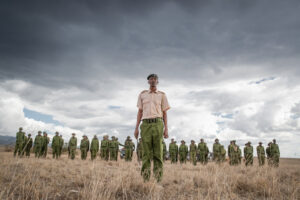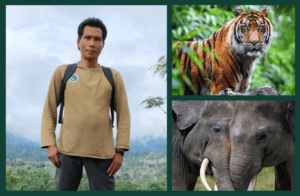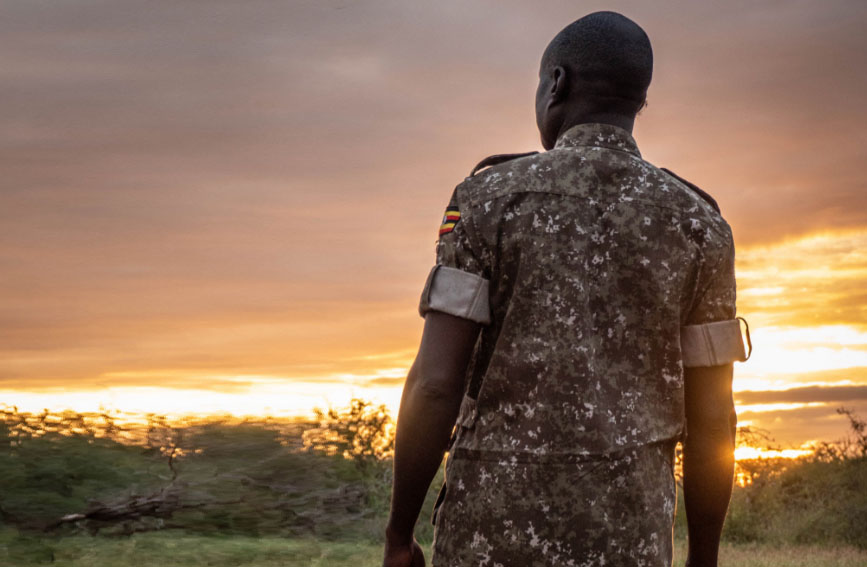We Need to Keep Rangers at the Forefront of Conservation

TGLF’s founder Sean Willmore and Chair Bill Jackson recently contributed to an article published by the World Commission on Protected Areas, the world’s premier network of protected area expertise, on the impact of the COVID-19 pandemic on protected and conserved areas.
Drawing on rangers and experts from around the world, the article identifies significant negative impacts of COVID-19 on many protected and conserved areas, and on the livelihoods of communities living in and around these areas.
Impacts from loss of tourism
The current pandemic and its aftermath could undermine decades of conservation effort. Before the pandemic the world’s protected areas received roughly eight billion visits per year, generating approximately US $600 billion per year in direct in-country expenditure. The estimated direct value of wildlife tourism is US $120 billion or US $346 billion when multiplier effects are included. It generated 21.8 million jobs (World Travel and Tourism Council, 2019).
This income has virtually stopped as a result of COVID-19. A recent survey found that over 90 percent of African safari tour operators had lost over three-quarters of their bookings, and many indicated they had no bookings at all.
With more than 16 million people directly or indirectly employed in tourism in Africa, the impact is immense. Community-based conservation areas in particular provide income support for families through tourism. The Mara Naboisho Conservancy in Kenya, for example, provided the main cash income for over 600 Maasai families – this has now disappeared.
Many communities living near protected areas benefit from tourism revenue; for example, those living around the mountain gorilla parks in Rwanda, Uganda and Democratic Republic of the Congo benefit from a portion of park fees. These communities have been hit hard. In some cases, the economy of entire towns – such as Hoedspruit adjacent to Kruger National Park in South Africa – has come to a standstill after the shutdown of the adjacent protected area.
Communities depending on tourism adjacent to Costa Rican protected areas and Galapagos National Park, Ecuador are similarly affected. This loss of income from tourism is unlikely to be short-lived: a study by Global Rescue and the World Travel and Tourism Council (2019) found that the average time from impact to economic recovery of tourism following disease outbreaks was 19.4 months.
Direct ecological impacts
Early indications are that dozens of species of primates are likely to be susceptible to COVID-19. This is a particularly high risk for habituated mountain gorillas in regular contact with humans. A disease outbreak could be devastating for this fragile subspecies. It would also destroy the mountain gorilla tourism sector that currently funds the management of all mountain gorilla protected areas, as well as many other protected areas in those countries, and crucial revenue for surrounding communities.
Poaching: different dynamics
There are reports of increased poaching (both subsistence and commercial) and illegal resource extraction in Cambodia, India, Costa Rica and southern and eastern Africa; a tenfold increase in illegal logging is reported in Tunisia. Big Life Foundation in Kenya has reported an increase in giraffe hunting for bushmeat. In the Seychelles, Fiji, Indonesia, the Philippines and Hawaii, there are reports of increasing fishing pressure in marine protected areas as a consequence of reduced patrols.
On the other hand, there are reports of significantly less rhino poaching in Kruger National Park and other protected areas in South Africa due to lockdown and travel restrictions. It is important to note that data on poaching trends are not yet widely available. High value transnational trafficking may be temporarily declining because of lockdowns and travel restrictions, but there are indications that poaching for bushmeat, illegal grazing and fishing may be increasing.
Rangers at risk
The immediate response to COVID-19 in many protected areas was to reduce staff activity and vital management services, including ranger patrols. Reduced revenue and budgets for parks agencies threatens employment. Travel restrictions have made it difficult for some rangers to get to work; in Ecuador half of all rangers are thus affected. Colombia is maintaining ranger activities and providing appropriate equipment to protect their health while also relying more on technology such as drones. Many rangers who were in the field at the time of the lockdown were unable to get home, or were kept on duty to avoid the risk of rotating in additional staff (e.g. in Rwanda); so they are kept apart from their families for a prolonged period during an already stressful time.
In other protected areas, management activities have been reduced because of expenditure constraints and cuts in staff numbers; or staff may be operating on reduced incomes (e.g. in Rajasthan, India, frontline staff have had salaries cut by 30 per cent salary for three-months). Reduced staffing and travel restrictions severely impede wildlife monitoring and control programs.
Rangers – key to conservation
The article notes that the COVID-19 crisis could offer an opportunity to transform the economic approach that has led to this situation, and to forge green, inclusive policies for a sustainable recovery. It could be used to build a far more positive future for these places and improve the prospects for human well-being everywhere.
Working at the forefront of conservation, well-resourced rangers are a key element of WCPA’s three phases of response to the COVID-19 pandemic – rescue, recovery, and the rebuilding and expansion of the global network of protected and conserved areas.
With your support, the Thin Green Line Foundation will support WCPA’s response through direct and ongoing support to Rangers, including:
- Salary support (replacement wages or top-up pay) to ensure normal work cycles,
- Essential personal equipment for patrols and other fieldwork,
- Funds for medical treatment for rangers diagnosed with COVID-19, and
- Financial aid for families of rangers who have died from COVID-19.
If you can, please consider giving to our Ranger Emergency appeal, which will provide Rangers with the support needed to ensure their livelihood, their communities’ and the wildlife they strive to protect.




